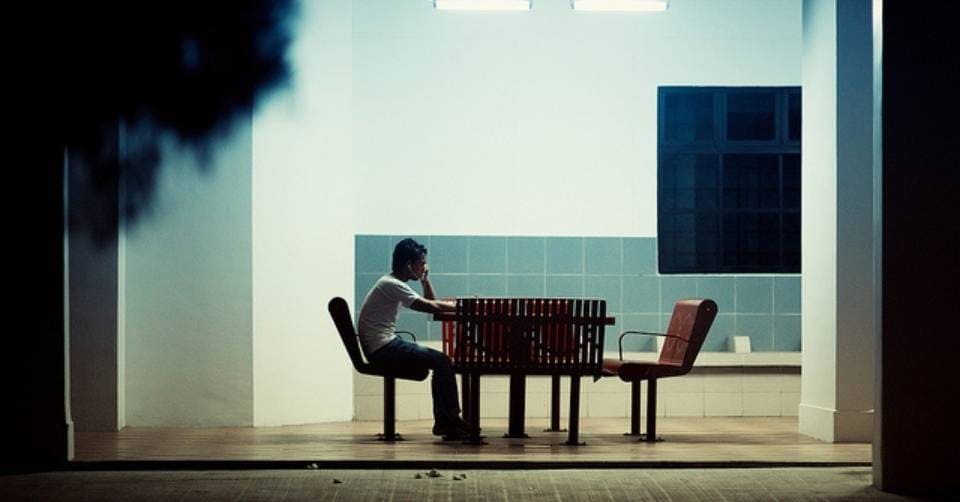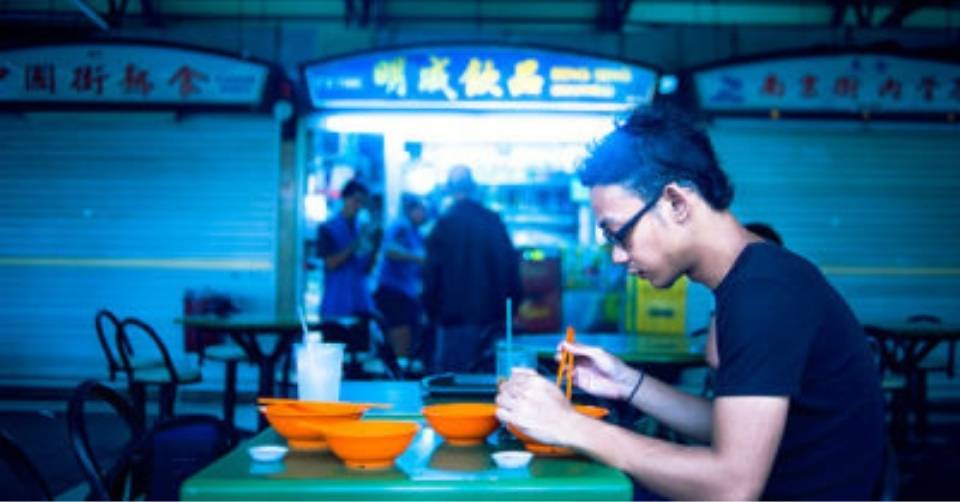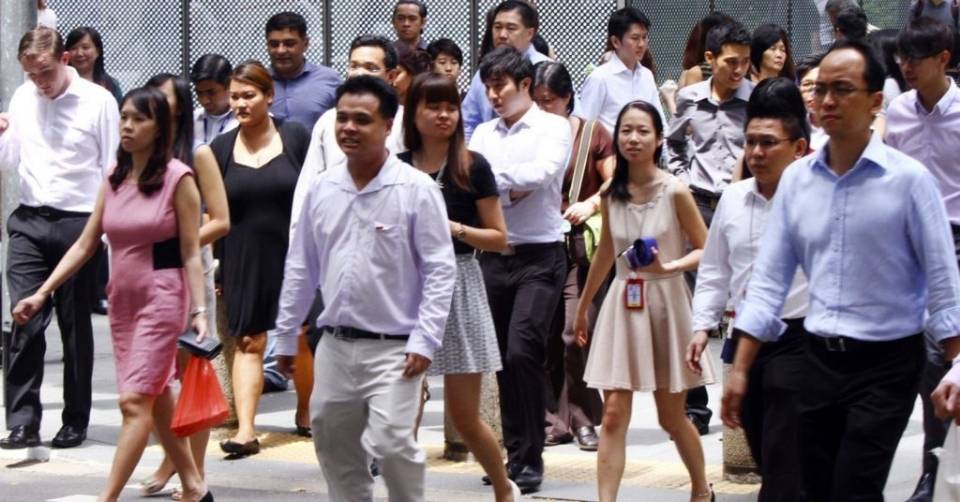Over the years, I figured that Singapore’s dating culture is unique and flawed in its own special kind of way. Singapore is an Asian cultured society that is sandwiched between Westernized and Asian values simultaneously. This weird sandwich often results in a clash of values, beliefs in our dating lives. I'm a Singaporean male bred and born from the heartlands in Singapore. I’m not born into a privileged family. I stayed in a HDB, a public flat the majority of my life, received a typical Singaporean education. I grew up in a conservative Asian family setting. You know, the typical conservative Asian family. If you don’t get a 101/100 in school, you get disowned and aren't allowed to come home. If you were somewhat like me, you probably aren’t equipped to talk openly about sex, intimacy, and relationships openly.
Apps Dating Experts Recommend to Men
Whether it's your first real relationship or you have a string in your past there are a few apps that dating experts recommend consistently. These are apps where you can meet great girls who want something long-term as well as those just looking to keep it casual:
| Site | Our Experience | Our Rating | Free Trial Link |
|---|---|---|---|
Best For Relationships  | Experience Highlights
| 9 | Try eHarmony |
Best For Casual Fun  | Experience Highlights
| 9 | Try AFF For Free |
Great If You're Handsome  | Tinder Highlights
| 8 | Try Tinder |
Singaporean Dating Culture: Shame and Honour
If you were like me, you were brought up to think that good grades equal a good job, a good job equals a nice girlfriend, a good girlfriend or wife equals success in life. You were brought to be ‘useful’ to society. You had to excel in anything you laid your hands on, rejection and failure meant death. There's a reason why the dating advice community is much smaller in Asia compared to Westernized cultures. One thing the dating advice community did right was the concept of self-reliance. If you take full responsibility for your own behavior, you can change your love life and not everything is left to fate or genetics.
It’s the most difficult thing to admit to themselves, their families, and other loved ones that they have a problem and need help. The mere acknowledgement of an Asian person having a problem is going against cultural norms because it sends the implicit message to others that you have let them down. - Psychology Today
It's quoted by Emerson that society is a conspiracy against self-reliance. Asian cultures are collectivistic by nature. The idea behind collectivism it's that it's culturally acceptable to rely on groups, stay in groups, rather than rely on oneself. Collectivism promotes the idea of giving up your individual needs for the ‘greater good’ of society. Giving up your needs is also known to be selfless and considered a 'good' moral value in Asian cultures.
However, altruism also is debated philosophically. Our human actions are inherently selfish. You can argue that giving up your needs for the greater good is still selfish because you’re deriving pleasure from the action of giving up your needs. Look, I’m not here to debate if collectivism or individualism is better, there are helpful and unhelpful values in both value structures. One huge part of Singaporean culture believes that success from dating and relationships will ensue from success in external metrics such as your career, job, academic success or monetary wealth. There's a common cultural notion that if you're rich, hold a high-paying job, you’ll automatically attract women, or are deemed successful in life. From my experience as a dating coach, the majority of Singaporean (and arguable Asian) man goes through his whole life believing he needs a lot of external successes to be successful with women. You are also not supposed to talk about your emotions, you’re not supposed to feel sad, you’re not supposed to swear, to be pissed off. You’re supposed to be that good Asian kid that goes to school and get good grades. This is also why psychotherapy, mental illness, is much more stigmatized in Asian societies, with the majority of Singaporeans suffering from it not seeking help.  Sexual shame inflicts not just Singaporean men, but men all over the world, it's just more so in Asia. I remembered that the topic of sex, relationships, and emotions were NEVER discussed when I was growing up. Needless to say, I was piss poor with my relationships with women and that single-handedly inspired my dive into the dating advice community. This lack of emotional depth and sexual shame may lead to us Singaporean males being perceived as 'boring' and 'unexpressive'. From personal experience, many Singaporeans actually pride themselves on these metrics of success, without questioning if that's the best way to measure success in life. It’s no surprise that Singapore has been reported for being a soulless, unhappiest, longest worked culture.
Sexual shame inflicts not just Singaporean men, but men all over the world, it's just more so in Asia. I remembered that the topic of sex, relationships, and emotions were NEVER discussed when I was growing up. Needless to say, I was piss poor with my relationships with women and that single-handedly inspired my dive into the dating advice community. This lack of emotional depth and sexual shame may lead to us Singaporean males being perceived as 'boring' and 'unexpressive'. From personal experience, many Singaporeans actually pride themselves on these metrics of success, without questioning if that's the best way to measure success in life. It’s no surprise that Singapore has been reported for being a soulless, unhappiest, longest worked culture.
Blurring the Lines Between Love, Lust, and Sex
If you’re a Singaporean male, you probably feel judged or ashamed of bringing a woman back home by your parents. Sex is often seen as "immoral and unethical". This, ultimately, is a source of sexual shame. It's no surprise that people that have trouble with attracting women often feedback to me that they have got extremely strict parents. One of the traditional Asian cultural beliefs is that you have to have a great connection with a woman before you can have sex with her. There is an unsaid rule that it's a must for marriage or a long-term relationship before you can have sex. This is why girls complain that guys only want sex and why guys complain why girls are needy. In the end, causes a lot of manipulative and nice guy behaviors where you end up buying gifts and spending time, effort, and attention in hopes at the end of the day receiving sex. It's basically saying: I'm going to buy you this dinner/gifts/bags so that you let me fuck you later.
Here's the truth: Sex is not immoral or unethical when it’s consciously agreed between both parties. Here's the second truth: sexual desire should not be the only reason why you get into a relationship. Ultimately, a long committed relationship should only be pursued if there's long-term compatibility in the relationship. Wanting to have sex with someone and desiring a committed relationship are two separate issues. Emotional attachment/commitment doesn't automatically/ shouldn’t come after or before sex. Sex doesn't mean automatically mean emotional attachment/commitment. There are many times both parties are sexually attracted to each other but are actually incompatible and differ in life values.  Throughout the majority of history, sex was a strictly controlled good. If you dated up in social classes, you might find yourself beheaded or shot. Now, you’re living in a modern world where you have the knowledge and freedom the choose your sexual partners and relationships with lesser repercussions with the invention of condoms and pills. It’s a gift in itself. Lastly, sex shouldn’t be seen as a huge deal. It isn’t something that you should hold on to like a badge of honor. Sex, love, and intimacy aren’t something that you can earn or objectify.
Throughout the majority of history, sex was a strictly controlled good. If you dated up in social classes, you might find yourself beheaded or shot. Now, you’re living in a modern world where you have the knowledge and freedom the choose your sexual partners and relationships with lesser repercussions with the invention of condoms and pills. It’s a gift in itself. Lastly, sex shouldn’t be seen as a huge deal. It isn’t something that you should hold on to like a badge of honor. Sex, love, and intimacy aren’t something that you can earn or objectify.
The Singaporean Culture Ties Economics to Long Term Commitment
One of the cultural nuances of Singapore is that public housing is only purchased upon marriage or what we call registration of marriage. This can cause a problem, a blog post by MoneySmart.Sg claimed that one of the top reasons Singaporeans cancel their flat purchase is because they break up before collecting their keys. Singapore is great economically. I have nothing wrong with that, however, when economics is seen as a means to relationships, that's where people make decisions they are not ready to make.  If you are more interested and worried about public housing instead of the quality of the relationships when it comes to marriage, then you’re dug your own grave from the start. The purchase of public housing (or anything for that matter) should not be a determinant of whether or not you should stay in a relationship. More often than not, relationships are treated as economical assets in Asian culture. Namely: Guan Xi in Chinese. If you're only loved for some extrinsic benefit you provide to someone else instead of mutual support and affection. (and at times, your parents) then you'll always base your self-worth on the things you can provide to others, and not who you actually are as a person. For example:
If you are more interested and worried about public housing instead of the quality of the relationships when it comes to marriage, then you’re dug your own grave from the start. The purchase of public housing (or anything for that matter) should not be a determinant of whether or not you should stay in a relationship. More often than not, relationships are treated as economical assets in Asian culture. Namely: Guan Xi in Chinese. If you're only loved for some extrinsic benefit you provide to someone else instead of mutual support and affection. (and at times, your parents) then you'll always base your self-worth on the things you can provide to others, and not who you actually are as a person. For example:
- You're only accepted and loved if you're getting full marks for your Science examinations.
- You're only accepted and loved if you attend piano classes.
Not this is a conditional form of relationship, it also fucks with your self-esteem. It also screws up your perception of love and intimacy. Ultimately, the healthy dynamic of a relationship shouldn’t be solely measured by externals like achievements or social status. If you sacrificed your personal values, just to be with someone, then there’s actually really no relationship at all.
Singaporean Women Materialistic and Superficial?
There are a couple of articles floating online that suggests that Singaporean women are spoilt, have an inflated sense of self-worth, and expect to get treated like princesses. For every stereotype, there’s a small dose of truth. I generally do find the average Singaporean women ‘spoilt’ in the sense that a lot of them aren’t able to hold down a meaningful conversation (which is ironic for being educated in one of the best education systems in the world). You also could argue that the majority of Singaporeans can’t hold down a fucking meaningful conversation.  I did some Googling around, found a Quora thread, another one, and some research. Surprise, surprise, there's actually an article with data points that goes to show YES, Singaporean girls are do account for finances when choosing a long-term partner, most of them stating that they account for finances when looking for a husband or a long-term relationship. There’s also a survey that says that Singaporean women aren’t willing to date someone who is shorter than them. You can argue that from an evolutionary standpoint. Females want to be with males that have wealth and resources so that they are able to care for their offspring. Just like how males want to be with physically attractive females that have positive indicators of the ability to give birth: nice hair, wide hips and etc. However, people also choose mates not just because they want to fuck each other brains out or give birth to healthy offspring, but also other factors such as personal values, emotional attachment, lifestyle compatibility and etc. So what gives? It's difficult not to ignore the demographic of local Singaporean women dating foreign men in Singapore. Every couple of months, I go to the popular drinking night spot club street in Singapore. Whenever I'm there, I'm flooded with the expat crowd from the central business district. It’s hard not to notice the Asian woman wrapping her hands around a Caucasian male. I did some Googling on the internet's general sentiment on the state of Singaporean masculinity. I found out our popular blogger Xia Xue's opinion on how Singaporean men need a certain amount of introspection, start adding value to society, stop whining about the government, stop posting on forums and stop referencing colloquial sexual terms when it comes to sex. Spoiler: She ended up marrying a foreigner.
There is also another long article by a foreigner living in Singapore titled: 'what's wrong with Singaporean men'. He argued that 1) Singaporean men aren't independent because they don't move out of home 2) Singaporean men are sexist and are stuck in the last century 3) Singaporean men are stingy on dates 4) Singaporean men dress poorly and put no effort into their appearance 5) Singaporean men look great on paper but are poor dates. Unfortunately, being a Singaporean male myself, I agree with some of their points. However, does that mean that Singaporean women aren’t choosing Singaporean women as dating partners at all Interestingly, I found statistics that the majority of Singaporean women are still marrying Singaporean men. However, you could argue marriage doesn't really demonstrate the sexual desirability of Singaporean men. There are even evolutionary theories that suggest that women choose long-term commitment with men because of long-term safety, security/ economics. I’m not going to debate you on the multiple of evolutionary theories on this, but you get the rough drift. From my experience, Singaporean men are great at putting in the hours and grinding it out. However, I think a lot of us measure up pretty poorly in other areas, especially when it comes to certain traits: being outspoken and having independent thinking. Here's my critique. Singaporean men are 'boring losers' when it comes to standing up for their own ideals and values. This is the opportunity cost of a relatively conservative Asian culture.
I did some Googling around, found a Quora thread, another one, and some research. Surprise, surprise, there's actually an article with data points that goes to show YES, Singaporean girls are do account for finances when choosing a long-term partner, most of them stating that they account for finances when looking for a husband or a long-term relationship. There’s also a survey that says that Singaporean women aren’t willing to date someone who is shorter than them. You can argue that from an evolutionary standpoint. Females want to be with males that have wealth and resources so that they are able to care for their offspring. Just like how males want to be with physically attractive females that have positive indicators of the ability to give birth: nice hair, wide hips and etc. However, people also choose mates not just because they want to fuck each other brains out or give birth to healthy offspring, but also other factors such as personal values, emotional attachment, lifestyle compatibility and etc. So what gives? It's difficult not to ignore the demographic of local Singaporean women dating foreign men in Singapore. Every couple of months, I go to the popular drinking night spot club street in Singapore. Whenever I'm there, I'm flooded with the expat crowd from the central business district. It’s hard not to notice the Asian woman wrapping her hands around a Caucasian male. I did some Googling on the internet's general sentiment on the state of Singaporean masculinity. I found out our popular blogger Xia Xue's opinion on how Singaporean men need a certain amount of introspection, start adding value to society, stop whining about the government, stop posting on forums and stop referencing colloquial sexual terms when it comes to sex. Spoiler: She ended up marrying a foreigner.
There is also another long article by a foreigner living in Singapore titled: 'what's wrong with Singaporean men'. He argued that 1) Singaporean men aren't independent because they don't move out of home 2) Singaporean men are sexist and are stuck in the last century 3) Singaporean men are stingy on dates 4) Singaporean men dress poorly and put no effort into their appearance 5) Singaporean men look great on paper but are poor dates. Unfortunately, being a Singaporean male myself, I agree with some of their points. However, does that mean that Singaporean women aren’t choosing Singaporean women as dating partners at all Interestingly, I found statistics that the majority of Singaporean women are still marrying Singaporean men. However, you could argue marriage doesn't really demonstrate the sexual desirability of Singaporean men. There are even evolutionary theories that suggest that women choose long-term commitment with men because of long-term safety, security/ economics. I’m not going to debate you on the multiple of evolutionary theories on this, but you get the rough drift. From my experience, Singaporean men are great at putting in the hours and grinding it out. However, I think a lot of us measure up pretty poorly in other areas, especially when it comes to certain traits: being outspoken and having independent thinking. Here's my critique. Singaporean men are 'boring losers' when it comes to standing up for their own ideals and values. This is the opportunity cost of a relatively conservative Asian culture.
Emotional Independence from Our Parents
In Singapore culture, it’s a cultural norm to stay with Mum and Dad all the way till 35 or till you are married. Look, I'm not against staying with your parents, however, there are tons of benefits from gaining independence from your parents. However, our emotional dependence on our parents often leads to issues in our dating lives. It’s also common to hear the phrase: you’re not marrying the girl but you’re marrying the family. I completely disagree. It's an outdated traditional belief that shouldn't hold true today. It's a piss poor form of boundaries. In any long-term committed relationship, including marriage, you and your partner are going to start a life together. Your life choices should be independent of what your parents expect of you. I’ve dated girls that are always worried about what Mum and Dad thought of her. This is despite reminding her constantly: "Hey look, I’m dating you, and I’m not dating your parents." Our life choices are often dictated by the judgment and opinions of society. This includes our friends, our family, and society expectations in general. We never bothered to differentiate ourselves in a manner that might be different from a societal norm. This plays out in our career choices as well. Singaporean men often choose the more 'safe choices' of being an accountant, a lawyer, or a doctor as their career choice. You often also hear people lament that the arts, music scene in Singapore is a dead end, and there's no money in the art of music. There is also a huge cultural pressure on males to be financially successful. Hence, we often sacrifice our own ideals and values for the sake of financial success. When you adjust your behavior to follow suit with society with the fear of being seen as different, or standing out, those aren’t exactly bold traits. It's a cultural norm in Singaporean culture to stay with Mum and Dad till you're married. That's because rent is known to be expensive in Singapore and almost everyone I know stays with their parents (including me). That's a problem many Singaporean men face. Freudians believe that the defining emotional struggle for men is emotionally disassociating from the safety and care of the emotional attachment of their mother. However, in Singapore, a lot of us still live with Mum and Dad and are emotionally dependent on them. Even the Singaporean billionaire, Min Liang Tan is proud of living with his parents. Personal experience backs this up as well, I always notice a stark difference in motivation whenever I'm back home with my parents as compared to when I'm traveling alone abroad. I always felt more free and motivated to pursue my own endeavors when I'm living alone.
The Singaporean Metrics of Success
There's a pervasive invisible script that a Singaporean male has to go to a good University, please Mum and Dad, get a respectable job, purchase a HDB, pump out 2.5 kids and retire by 65 or some age that the government decides. This model used to work for our parents. That's because that was what it was required economically for their generation at that point in time.  So what is the result of this cultural script? Hundreds of Singaporean men work in jobs they don't enjoy, just to keep impressing people they don't like, to earn money they don't need, and splash it on the common Singaporean 5 Cs: Condo, credit card, car, cash, and country club membership. You get a generation of successful men who are pushovers, don't assert themselves, can't get a date, and end up embroiled with sex with mommy issues. Historically, men attached their entire identities to their careers and professions. That's where we've always derived our sense of self-worth. That's how men asserted their emotional autonomy. However, Singapore has evolved to a society of financial luxury. This is true for many Western cultures and Singapore. Not to mention that women have equal opportunities, work harder than men, and they're are even cases of women outperforming men in Math and Science. In my experience, many Singaporeans are afraid of making independent valued judgments of their own, especially when it comes to life choices. It’s no surprise that the alternative media in Singapore often expresses that Singaporeans are often politically silenced and generally are afraid to express their opinions.
There’s societal pressure of financial success as a commonly used metric of success in Singaporean culture. If you’re rich, that meant you’re successful. Why are academic performance and wealth such a huge metric of success in Singaporean society? What happened to any sense of meaning? Thirdly, the Singaporean education system doesn't really encourage you to stand up for yourself or think outside of the box either. Since day one, you are spoon-fed and told to just follow the system. It felt stupid to me that the sole purpose of going to university if it isn't the actual role of learning but to get the highest grade in your examinations. Curiosity is sacrificed for the sake of extrinsic rewards. You’re memorizing that periodic table in chemistry class not because you give a fuck about chemistry itself, but so that you can pass your examinations. Whilst many may think that NOT out rightly or directly expressing their opinions help with harmony, it may not always be the case. There's a difference between harmony and conformity. Through the years, I often had friends and family criticizing me for voicing out my personal opinions. However, it was these controversial opinions generate long-term trust and meaning in my relationships. Yes, you want to be secure. Yes, your Mum and Dad want you to be ‘successful’. However, don’t just slave away at some career that you aren’t interested in. I’m no different from you. I was shit scared of not finishing my accounting degree. I’m shit scared of failing financially in life. Hell no, I am even more afraid than you are. I was brought up to think that I was an absolute failure if I didn’t achieve these things. I was brought up to believe that only a ‘well-respected job’ meant ‘success’.
So what is the result of this cultural script? Hundreds of Singaporean men work in jobs they don't enjoy, just to keep impressing people they don't like, to earn money they don't need, and splash it on the common Singaporean 5 Cs: Condo, credit card, car, cash, and country club membership. You get a generation of successful men who are pushovers, don't assert themselves, can't get a date, and end up embroiled with sex with mommy issues. Historically, men attached their entire identities to their careers and professions. That's where we've always derived our sense of self-worth. That's how men asserted their emotional autonomy. However, Singapore has evolved to a society of financial luxury. This is true for many Western cultures and Singapore. Not to mention that women have equal opportunities, work harder than men, and they're are even cases of women outperforming men in Math and Science. In my experience, many Singaporeans are afraid of making independent valued judgments of their own, especially when it comes to life choices. It’s no surprise that the alternative media in Singapore often expresses that Singaporeans are often politically silenced and generally are afraid to express their opinions.
There’s societal pressure of financial success as a commonly used metric of success in Singaporean culture. If you’re rich, that meant you’re successful. Why are academic performance and wealth such a huge metric of success in Singaporean society? What happened to any sense of meaning? Thirdly, the Singaporean education system doesn't really encourage you to stand up for yourself or think outside of the box either. Since day one, you are spoon-fed and told to just follow the system. It felt stupid to me that the sole purpose of going to university if it isn't the actual role of learning but to get the highest grade in your examinations. Curiosity is sacrificed for the sake of extrinsic rewards. You’re memorizing that periodic table in chemistry class not because you give a fuck about chemistry itself, but so that you can pass your examinations. Whilst many may think that NOT out rightly or directly expressing their opinions help with harmony, it may not always be the case. There's a difference between harmony and conformity. Through the years, I often had friends and family criticizing me for voicing out my personal opinions. However, it was these controversial opinions generate long-term trust and meaning in my relationships. Yes, you want to be secure. Yes, your Mum and Dad want you to be ‘successful’. However, don’t just slave away at some career that you aren’t interested in. I’m no different from you. I was shit scared of not finishing my accounting degree. I’m shit scared of failing financially in life. Hell no, I am even more afraid than you are. I was brought up to think that I was an absolute failure if I didn’t achieve these things. I was brought up to believe that only a ‘well-respected job’ meant ‘success’.
The Old Metric of Success Isn’t Helpful Anymore
These cultural narratives that are instilled in us growing up in Singapore are no longer helpful anymore. There's no particular party to be blamed here, it’s merely an evolution of economics and culture. Here's my theory: back then Singapore needed rapid economic growth, hence the government pushed for it. That was required in my parent's generation. However, things are different now. Singapore is an economically advanced country and we're still measuring success in the same way as we did back then. The result? The meaningless pursuit of financial success. Countless reports and cases have stated that Singaporeans are one of the unhappiest people in the world. Our Singaporean forefathers focused heavily on economic growth for the last 50 years. It's also researched that Singaporean workers are constantly the highest worked, workers in the world, beating even the industrious South Koreans. Singapore is also reported to have low fertility rates.  Research shows that economic growth in a competitive capitalistic economy is related to this low fertility rate. There's a popular argument that suggests when people have more disposable income, people are more willing to put off marriages and courtships. Have you sacrificed the other aspects of life in this mad chase for economics? Have you dug a hole so deep economically that you have to constantly pile upon it to keep it going? It's no longer enough to define ourselves through our unhelpful metrics such as our paycheck. You and I find ourselves as the first generation of men that must create our own. This isn't easy. In a multitude of ways, we're ill-equipped. However, you can be the first of Singaporean men that take a different step. Just like how our founding fathers did half a century ago. Works Cited Health, I. o. (2016, September 23). Latest study sheds light on the state of mental health in Singapore.Retrieved May 29, 2018, from Institute of Mental Health: https://www.imh.com.sg/uploadedFiles/Newsroom/News_Releases/SMHS%20news%20release.pdf
Research shows that economic growth in a competitive capitalistic economy is related to this low fertility rate. There's a popular argument that suggests when people have more disposable income, people are more willing to put off marriages and courtships. Have you sacrificed the other aspects of life in this mad chase for economics? Have you dug a hole so deep economically that you have to constantly pile upon it to keep it going? It's no longer enough to define ourselves through our unhelpful metrics such as our paycheck. You and I find ourselves as the first generation of men that must create our own. This isn't easy. In a multitude of ways, we're ill-equipped. However, you can be the first of Singaporean men that take a different step. Just like how our founding fathers did half a century ago. Works Cited Health, I. o. (2016, September 23). Latest study sheds light on the state of mental health in Singapore.Retrieved May 29, 2018, from Institute of Mental Health: https://www.imh.com.sg/uploadedFiles/Newsroom/News_Releases/SMHS%20news%20release.pdf











